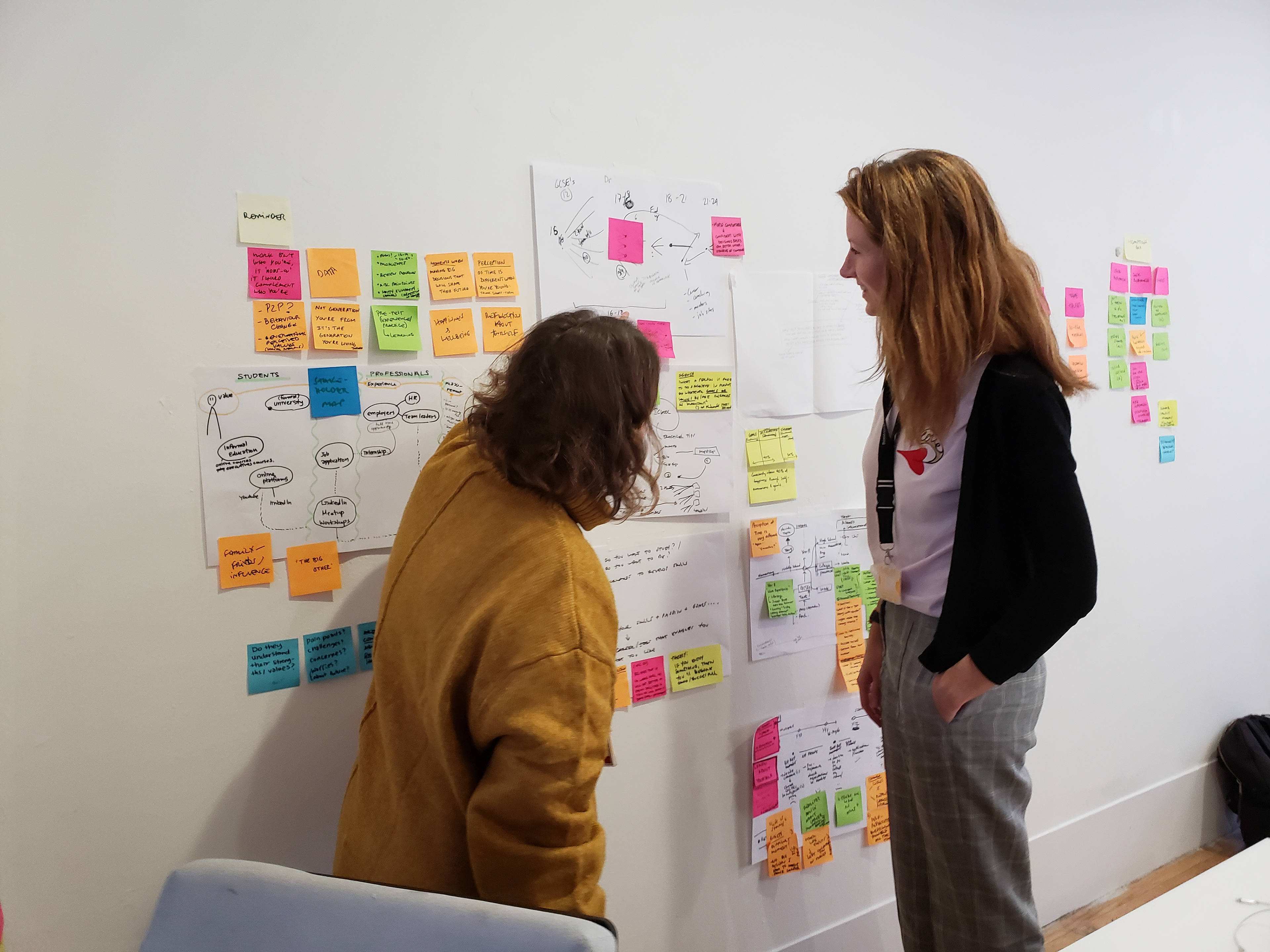PROJECT: My life, my way How might we empower 16-24 year olds to imagine their ideal future selves so that they can positively reframe the decision-making moment by considering future possibilities?
CLIENT: RCA/ Telephonica Alpha Health
RCA GROUP: Ally Rosam, Donglin Kim, Karen Rozenbaum
The Brief:
Alpha Health is Telefonica’s Moonshot Factory whose mission is to deliver breakthrough solutions to address the greatest challenges in the health sector worldwide, with a focus on reducing chronic diseases by increasing people's happiness and enabling positive behaviour change.
Therefore how might we help young people to improve the agency they have upon their lives so they can be healthier and happier, through supporting, empowering and inspiring them to successfully navigate life’s transitions and achieve their personal goals?
The Design Problem:
The Design Problem:
Based on previous research we identified the area of work, as it is one of the most important determinants of physical and mental health. Exploring and finding work that brings meaning to life is difficult in a context where the future of the workplace is uncertain and when young people are in a process of learning how to work. Therefore how might we help young people explore their purpose in work from a huge range of uncertain options and balance their own learning, work and life goals?
We discovered that there is a series of moments when young people between the ages of 16-18 start to make decisions and choices about their future selves in relation to work and therefore we focussed on this target group. We discovered that they all go through a similar decision-making process, characterised by high levels of emotion, namely anxiety due to pressure they feel from parents, school and society, which led us to our opportunity statement.
How might we empower 16-18 year olds to imagine their ideal future selves so that they can positively reframe the decision-making moment by considering future possibilities?
The Barriers:
We identified 16-18 year olds as our target group, but gaining access to school aged children was particularly challenging.
The Process:
Young peoples’ aspirations and expectations of work are at odds with reality. In order to understand what young people really think about work we carried out desk based research, guerrilla and in depth one-one interviews. We created journey maps by considering all of the touchpoints and contexts that young people encounter when approaching the question of 'what do I want to be in the future.'
We created a model of the decision making process that young people go through and considered the emotional journey and associated pains and challenges in an attempt to understand where the biggest opportunities lay. We then validated these assumptions during a workshop that we ran in a Secondary School with eight 15-18 year olds.
We synthesised the data using affinity mapping to uncover key themes and insights. As a group we used ideation methods to come up with initial service concepts, considered value propositions for all stakeholders and spoke to experts to ensure technology feasibility as well as commercial viability.


We built and tested low fidelity prototypes during a further workshop and subsequently iterated the concept in response to feedback. We also ran an online social media campaign and analysed the data to test desirability for the concept.
The Output:
We learned that during what we called the ‘pre experience’ phase, which is when young people interact with professionals they actually start to feel more positive. Our strategy was to harness this positive feeling and extend it throughout the entirety of the decision-making process. ‘Dough’ was created to inspire and open up possibilities for young people by showing videos of work and the work environment taken by professionals themselves, which go beyond the traditional job description. The app collects data from their reactions to the videos and learns how they might like to work and what might be important to them. It then presents this information in the form of a personalised profile, which facilitates greater self-awareness.
The service introduces a different way to explore decisions at multiple points during the journey of understanding what you'd like to be in the future, changing the first step from ‘choosing a career’, to replacing it with ‘understanding myself better.’
We believe that ‘Dough’ could encourage young people to feel more excited and positive about their future and career at multiple points throughout their lives, and our prototypes and test results with both users and professionals reinforce that.
Exhibition of work:
